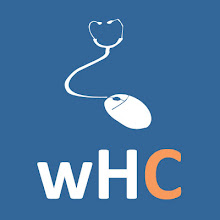 Overview
OverviewThe microorganism Candida albicans is a unicellular fungus (i.e. yeast) that is present in all humans. Under normal physiological circumstances, its growth is controlled by the immune system and bacteria that live with humans symbiotically. However, in immunocompromised individuals, such as patients with AIDS or cancer, the immune system is weakened and cannot effectively control the growth of C. albicans. Consequently, yeast infections are often seen in such patients. Oral thrush, for example, is often one of the first signs of HIV infection.
A popular book written by Dr. William Crook in 1975, The Yeast Connection, suggests that this problem does not occur exclusively in immunocompromised individuals. In the book, he proposes that environmental factors such as antibiotics, birth-control pills, poor diet, and stress can all cause C. albicans to grow unabated and cause numerous symptoms. This theory originated in 1986 from a book entitled The Missing Diagnosis written by C. Orian Truss, M.D. Both Crook and Truss claim that C. albicans overgrowth is responsible for a variety of non-specific symptoms that include, but are not limited to:
- Fatigue
- Depression
- Craving for carbohydrates (particularly sweets and foods containing yeast)
- Irritability
- Difficulty thinking or concentrating (“brain fog”)
- Recurrent bladder infections
- Sinus infections
- Diarrhea
- Constipation
- Bloating
Evidence
There is no experimental evidence that shows that C. albicans can growth uncontrollably in healthy individuals as a result of the environmental factors indicated by Crook. Likewise, there is no evidence that shows such an overgrowth cannot occur because it would be impossible to do so. A few studies have been done to evaluate the effectiveness of anti-fungal drugs in relieving symptoms that patients attributed to chronic candidiasis. A randomized, double-blind study published in the New England Journal of Medicine showed that treatment with nystatin did not provide significant improvement in patients with “candidiasis hypersensitivity syndrome” compared to placebo (Dismukes 1990). A randomized, double-blind, placebo-controlled study in Family Practice, meanwhile, showed that patients who received nystatin or a combination of nystain and a yeast-free diet had significant improvement in symptoms compared to patients who received a placebo or a combination of placebo and a yeast-free diet (Santelmann 2001).
Comment
In the introduction of the Santelmann paper, the authors state, "There are also reports of cures of chronic fatigue, allergic conditions including bronchial asthma, pre-menstrual distress, multiple sclerosis and autism with a regimen of diet free from yeasts, moulds and sugars." In the references list, I discovered that the "reports" are actually Truss's book The Missing Diagnosis, Crook's book The Yeast Connection and the Woman, and a commentary by Truss published in the Journal of Orthomolecular Psychiatry. Obviously, none of these sources are supported by any experiments, and using these sources to claim that a change in diet can cure multiple sclerosis is preposterous. The conclusions seemed to be reached by valid data collection and statistical analysis, but there is a high degree of subjectivity involved since the measure of symptom improvement was based on a questionaire. Also, there is absolutely no demonstration that improvement in symptoms was due to the eradication of C. albicans. One could easily argue that the improvement seen with nystatin resulted from, say, altered pain perception caused by the drug.
A lot of people on the web say that their symptoms improve on the "anti-Candida" diet. In the Santelmann paper, their yeast-free diet did not allow "honey, jam, sweets, ice cream, lemonade, fruit juices (except freshly prepared), alcohol, cheese, and breads and pastries containing yeast." These foods are all devoid of nutrition and high in sugar, so obviously people will feel better by not eating them! Eating these foods causes wild fluctuations in blood-sugar that can certainly leave anyone feeling miserable.
Conclusion
The idea of the "yeast syndrome" is highly speculative and is not supported by any evidence. While severely immunocompromised individuals such as cancer and AIDS patients are often affected by systemic candidiasis, there is nothing that suggests this condition occurs in healthy individuals. The suggestion to eliminate sugars and simple carbohydrates from the diet, however, is certainly prudent.
References
Dismukes, W., Wade, J., Lee, J., Dockery, B. & Hain, J. 1990, "A randomized, double-blind trial of nystatin therapy for the candidiasis hypersensitivity syndrome", The New England Journal of Medicine, vol. 323, no. 25, pp. 1717-1723.
Santelmann, H., Laerum, E., Roennevig, J. & Fagertun, H.E. 2001, "Effectiveness of nystatin in polysymptomatic patients. A randomized, double-blind trial with nystatin versus placebo in general practice", Family Practice, vol. 18, no. 3, pp. 258-265.
Photo credit: Amazon

